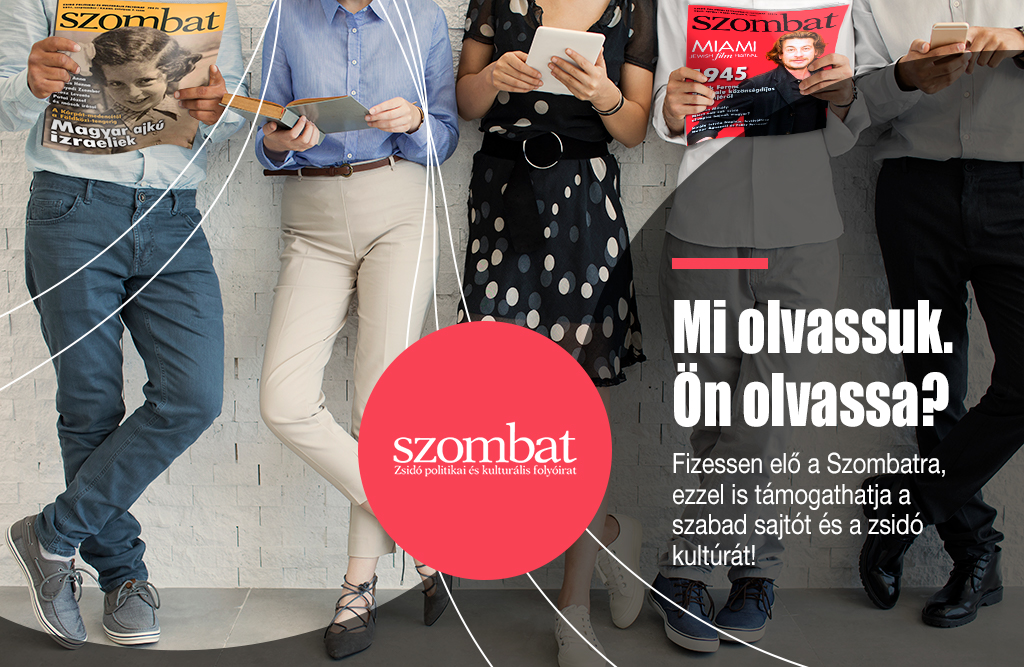Summary
Summary
In this month’s editorial, László Seres describes how the Near East has changed under American influence. ‘The neocons in Washington have made a series of mistakes and stupid moves over the past years, but they are absolutely right about one thing: if we want a peaceful, safe world, there can be no compromise with those, who want to destroy us – moreover, we must actively propagate freedom, the rule of law and the market economy. Democracies do not wage wars against each other.” Featured in this month’s issue is an interview with János Kis, one of the legendary leaders of the one-time Democratic Opposition, now a lecturer at the Central European University, in which he speaks of Israel and politics in general. “Israel is the ultimate refuge, to where Jews can retreat if they are persecuted anywhere in the world. In this sense, Israel’s existence and security is important, although I must add that I would be of the same opinion if I did not regard myself Jewish. At the same time, I find it difficult to image what would induce me to live the remaining years of my life in Israel”
The winner of the competition for the permanent exhibition of the Budapest Holocaust Museum has been announced. One of the losers, László Rajk (and his company), have appealed against the decision. This is not the single problem with the museum. The museum’s former staff, who have either been dismissed or left of their own accord, have sharply criticised the new leadership and the museum’s new concept. János Gadó‘s report offers an overview of the key issues in this debate.
This month’s issue includes a supplement on converts to Judaism. The Halakhic background is described by Naftali Krausz; Szilvia Peremiczky provides the historical background, while Zsófi Rick has conducted a series of interviews with converts who, however, asked to remain anonymous. To quote one of them: “I felt very much excluded. I felt a kind of ‘silent racism’. The greatest problem is that the religious leadership and the entire Jewish institutional system pretend that this question does not exist, they have a rather medieval attitude to this problem, even though it affects all of Jewry.”
Szilvia Peremiczky has contributed a tribute to Pope John Paul II, the Polish-born “Pope of the Jews”. She paints a many- hued, ultimately positive portrait of Karol Woytila. “He began the fight against anti-Semitism by accepting the Jewish heritage of Christianity and by taking a stand against the Church’s anti- Judaism. When he called Jewry Christianity’s elder brother, there was quite an outrage because he eliminated one of the ideological bases. Obviously, the Church has not been entirely freed of anti-Semitism. But this was through no fault of his, for he did what he could.”
Finally, this month’s issue is rounded off by excerpts from Ernő Szilágyi’s diary, who as a close colleague of Rezső Kasztner, the Zionist leader, participated in negotiations with the SS in 1944. Writing about the negotiations, Szilágyi jotted down the following bitter words: “What remains to be clarified is the commodity for sale. Eight times one hundred thousand organic bodies weighing from two to seventy-eighty kilograms. One can accurately measure the amount of protein and carbohydrate, of salt and water, of bone and nerves, of organic and inorganic matter in each. But one trifling detail eludes the chemist’s analytical measurements: the fact that these bodies have an awareness of themselves and that this can, for once, be left out of consideration in this trade transaction. And if we multiply eight by one hundred thousand, we arrive at the essence of the deal, as the SS gentlemen have so aptly noted.” Szilágyi’s diary is introduced by Attila Novák and illustrated by Győző Somogyi.
Címkék:2005-05

